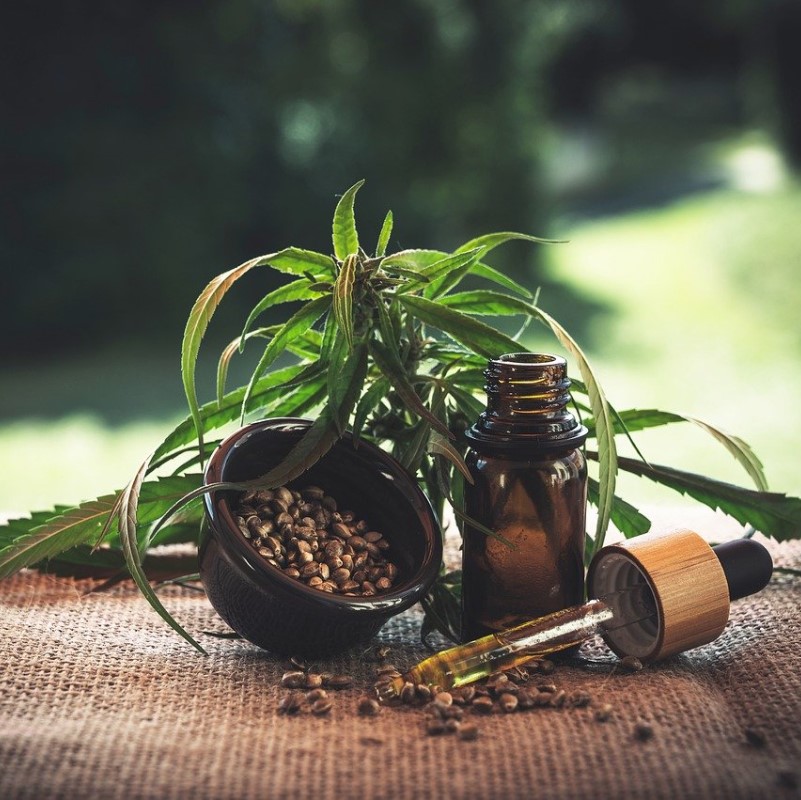
CBD is everywhere! You can find it in:
- Oils
- Creams
- Patches
- Beauty products
- Salves
- Tinctures
- Vapes
- Edibles
You name it. Someone has probably found a way to use it as a CBD delivery system. These products aren’t just found at medical marijuana dispensaries.
You can find products in:
- Pharmacies
- Supermarkets
- Health food stores
- Corner markets
- Spas, wellness centers, and stores
- On the web
Although CBD products are now flooding the market, people still have questions about:
- What is it?
- How do I use it?
- Is it safe?
- Is it legal?
We’ve covered these topics in other blog articles. What we have not covered is one of the most commonly asked questions: “Is CBD addictive?”
The Quickest Answer
According to a report from the World Health Organization,
“In humans, CBD exhibits no effects indicative of any abuse or dependence potential…. To date, there is no evidence of public health-related problems associated with the use of pure CBD.”
This statement is so clear-cut that it would simple to end this article right here. But we know that some people want to get all the deets. So let’s dive in.
It’s natural to be concerned about potential drug dependency, addiction, and psychotic illness when you think of marijuana. For decades marijuana has been presented as an enemy to our health.
There’s also been a misunderstanding about what marijuana is. Marijuana, Cannabis, is a plant that contains a lot of different kinds of cannabinoids and tannins.
Each of these has its own properties and can be isolated. The two most common cannabinoids that are used in products and medicine are CBD and THC.
Tell Me About Marijuana and Hemp
CBD can be derived from two plants: marijuana and hemp. When used as a whole, marijuana can be intoxicating, but that’s not because it contains CBD. That’s got more to do with THC.
If you take the CBD out of a marijuana plant and isolate it, it does not cause a high. Hemp is a cousin of marijuana, and it has 0 intoxicating properties. CBD that comes from hemp contains .03% or less THC- this is not enough to affect you.
It Can’t Be Addictive
CBD has never been proven to be addictive because it can’t be addictive. This particular cannabinoid is non-psychoactive and non-intoxicating. It doesn’t have the same psychoactive tendencies as its fellow cannabinoid, THC.
Both CBD and THC cannabinoids interact with CB1 & CB2 receptors in your brain. These receptors are part of a network of neurotransmitters linked to your endocannabinoid system.
CBD interacts with these receptors in a different way than THC does. At the molecular level, it is neither addictive nor produces the “high” effect that THC does.
No Psychoactive Buzz With CBD
CBD does not produce psychoactive buzz that gets you high. It won’t impair your motor skills, psychological functions, blood pressure, body temperature, or heart rate.
It’s also used to counteract the euphoric effects of THC at times when someone needs to take THC for medical reasons but doesn’t want to suffer its intoxication effects.
Treating Drug Addiction With CBD
It turns out that not only is CBD non-addictive, physicians can also use it to treat drug addiction. Preliminary reports suggest physicians might use CBD to lower the likelihood of developing cocaine and methamphetamine use disorder and nicotine and cannabis addiction. It may also prevent those who have kicked drug addictions from relapsing.
Ironically, something that people fear could cause addiction may help fight it. Although researchers need to run more clinical trials, some fascinating evidence may effectively treat various kinds of addiction.
- Animal studies show positive effects on opioid and psychostimulant addiction.
- Human studies present preliminary evidence of the benefits on cannabis and tobacco dependence.
- Its therapeutic properties can indirectly be useful in treating addiction disorders.
- It helps combat the adverse effects of THC and cannabis withdrawal symptoms.
- It could potentially treat cannabis addiction and other addictive disorders.
Make no mistake, these are serious claims. There is an increasing number of studies researchers are conducting in the US regarding the impacts of CBD on cannabis and opioid addiction.
There is also an ongoing Canadian study on CBD and cocaine addiction. The outcomes so far are good news as we have clearly needed new medications to treat the epidemic of substance abuse that is now worldwide.
What You Need to Know When Buying CBD
If you are concerned about drug addiction or getting high, be careful about where you get your CBD. Some CBD oil has a high THC content and can cause euphoric effects.
Yes, heavy, chronic cannabis use may increase the risk of addiction, but CBD has shown no potential for abuse or addiction. Researchers are still digging deeper into the long-term effects.
So far, studies have shown it effectively treats rare, severe forms of childhood epilepsy and may help reduce anxiety and chronic pain.
Still Not Sure About It?
We understand. It’s going to take some time to replace the marijuana myths with the facts. If you still have questions or concerns, we’ll be glad to talk with you further.
We’re dedicated to helping you uncover the facts you need to consider solutions to your health and well-being. CBD and medical marijuana offer so many positive, supportive benefits.
We would hate for you to miss out because of a misunderstanding around how they interact with your body. Contact us for a consultation today!
Resources
- Image attribution
- World Health Organization
- NCBI Article
- Clinical Trials
- Addiction
- Addictive Disorders
- PubMed